- Home
- Fay Weldon
Chalcot Crescent
Chalcot Crescent Read online
Chalcot Crescent
‘Reads like a first novel… it’s so fresh and vibrant and funny. The funniest dystopian novel I’ve ever read.’
BOYD HILTON
‘This legendary English author really opens up in this wickedly sharp story of her imaginary sister Frances… Riveting!’
Look Magazine
‘A great scroll of memory, skewed history and canny observation. Wonderfully imagined, constantly surprising.’
Saga Magazine
‘In this novel we are back to the bohemian, anarchist, feminist, audacious Weldon of old, mischievous and funny… A sparkling read, this is Fay Weldon back on top form.’
Good Book Guide
‘It fizzes! The great thing about this book is that it isn’t written by someone who’s twenty-five.’
JOEL MORRIS
‘Frances narrates much of the novel with a twinkle in her eye… knowingly light-hearted and tongue-in-cheek… As it careers towards a seemingly apocalyptic ending, the book reveals a healthy cynicism about men, women, feminists and the alternative.’
Independent on Sunday
‘Wildly imaginative and satiric… We could almost be back in the land of J.M. Coetzee for the convolutions of narrative identity but for the fact you’ll laugh out loud a whole lot more at Chalcot Crescent.’
Dove Grey Blog
‘A saga that has more than a touch of the dictatorship doctrine of Orwell’s 1984 about it… [Weldon’s] dazzling skill in mixing her personal facts with creative fiction provides its own frolics in [this] eclectic fantasy.’
Camden New Journal
Fay Weldon was brought up in New Zealand. Creator of the slogan ‘Go to work on an egg’, writer of the first ever episode of ‘Upstairs Downstairs’ and currently Professor of Creative Writing at Brunel University, Fay is best known for her novels Praxis, The Life and Loves of a She-Devil and Worst Fears. In 2001 she was awarded a CBE. She has eight children and stepchildren and lives on a hilltop in Dorset.
CHALCOT CRESCENT
Fay Weldon
First published in Great Britain in 2009.
This paperback edition first published in Great Britain in 2010 by Corvus, an imprint of Grove Atlantic Ltd.
Copyright © Fay Weldon 2009.
All rights reserved. The moral right of Fay Weldon to be identified as the author of this work has been asserted in accordance with the Copyright, Designs and Patents act of 1988.
No part of this publication may be reproduced, stored in a retrieval system, or transmitted in any form or by any means, electronic, mechanical, photocopying, recording, or otherwise, without the prior permission of both the copyright owner and the above publisher of this book.
This is a work of fiction. All characters, organizations, and events portrayed in this novel are either products of the author’s imagination or are used fictitiously.
For permissions please see page 280.
9 8 7 6 5 4 3 2 1
A CIP catalogue record for this book is available from the British Library.
ISBN: 978-1-84887-306-3
eISBN 978-0-85789-491-5
Printed in Great Britain.
Corvus
An imprint of Grove Atlantic Ltd
Ormond House
26-27 Boswell Street
London WC1N 3JZ
www.corvus-books.co.uk
The following works have been quoted in this book:
YELLOW SUBMARINE
Lyrics by John Lennon/Paul McCartney
Copyright 1966 Sony/ATV Music Publishing LLC. All rights
administered by Sony/ATV Music All rights reserved.
Used by permission.
IT AIN′T NECESSARILY SO (from “Porgy and Bess”)
Words and Music by GEORGE GERSHWIN, DU BOSE,
DOROTHY HEYWARD and IRA GERSHWIN
© 1935 (Renewed) GEORGE GERSHWIN MUSIC,
IRA GERSHWIN MUSIC and DU BOSE AND DOROTHY
HEYWARD MEMORIAL FUND.
All Rights Administered by WB MUSIC CORP.
All Rights Reserved.
I’M MY OWN GRANDPAW
By Moe Jaffe and Dwight Latham
THE BALLAD OF JOE HILL
By Alfred Hayes and Earl Robinson
Every effort has been made to contact copyright holders. However, the publishers will be glad to rectify in future editions any inadvertent omissions brought to their attention.
Contents
Surprises
The Way We Live Now
O, What A Noble Mind Is Here O’erthrown
How I Come To Be Amos’ Grandmother
And As I Was Saying
Stealing Karl
Becoming Amos’ Grandmother
How Amos Came To Be Born
The Stairs
A Pattern Of Surprises
The Wickedness Of Men
Amos’ Tirade
How Well We Lived Then
Venetia’s Lovely Home
Another Scene From Venetia’s Life, According To Her Mother, Who Wasn’t There But Can Imagine
Sitting On The Stairs Waiting For The Bailiffs To Go
Amos’ Genetic Inheritance
Why People Get Together
Do You Remember Florrie?
A Brief History Of My House
Back To The Point
Death Of A Sitting Tenant
It’s House Prices, Stupid!
Breakfast With Amos
Amos The Outsider
A Brief History Of My First Daughter Venetia
An Evening At Venetia’s
No End To The Surprises
Another Surprise
Son Of The Dumpling
A Strange Request
Carmageddon
A Conversation With Polly
What Is Going On?
Victor Getting Dressed
What’s Really Going On
A Visit From An Ex-Husband
A Visit From Amos, Ethan And Amy
In The Name Of God, Go!
Henry Intimidates, Or Thinks He Does
Escape
A Conversation With Polly
Surprise
A Flurry Of Slippages
Victor At The Office
Visiting Venetia
Marking Time
A Story For Feminists: Skip At Will
Polly In Another Sulk
Polly Tells The Truth
Surprise, Surprise, Surprise
Karl And Venetia
Action, Not Reflection
A Useful Conversation With Amos
Dr Yuk
The Battle For Muswell Hill
In The Facility
Le probleème avec notre époque est que le futur n’est plus ce qu’il était.
Paul Valéry
Two years after I was born, my mother had a miscarriage. Had she not, I would have grown up with a younger sister. This is the sister’s story, set in an alternative universe which closely mirrors our own.
Surprises
Is there to be no end to the surprises?
I had a good friend who said to me, ‘But I always thought by the time you got to forty everything would be sorted out. You’d have a husband and a home and children and there’d be no more trouble. But now look!’
Her name was Cynthia. It was her fortieth birthday. Her husband was divorcing her, not without reason; her love life was in chaos, and all three of her children were proving ungrateful. I remember replying that so far as I could see very few things in life worked out the way they were meant to. Age didn’t enter into it.
‘A friend’s offered me a week in a holiday cottage in Turkey,’ she said, ‘only it would mean leaving the children. Do you think that’s okay? I deserve a break.’
And I said no, it
was not okay, the children were upset enough as it was and now was not the time to leave them. ‘And as for deserving,’ I said piously, ‘there is no such thing. Just because you’ve had a hard time doesn’t mean an easy one ought to follow. There is no automatic system out there which keeps good and bad in balance.’
But Cynthia went anyway and a plane crashed outside Paris on the day she was expected back and as I was watching the TV news I saw one of her Victorian-style buttoned boots in the foreground of the mess of charred metal and scraps of flesh and scattered possessions strewed over the forest floor. Which was how I knew she’d been on the plane.
That was a nasty surprise. I always thought perhaps there was a bit of foot left in the boot. Eighteen little leather buttons, each one to be attended to. I always marvelled at how she found the time to put them on, being a mother of three with a home to run. That was in 1974.
On the other hand the children came into a great deal of compensation money, and their lives may have turned out better for the loss of a mother. Who is to say? All is surprise and paradox. I was no better for the loss of a friend, of course, friends being rare and valuable, and not imposed by chance, as mothers are, but there was no compensation for me.
‘Gran,’ said Amos, ‘you’re shivering. Should I wriggle down on my front and fetch a blanket?’ We had been sitting on the stairs for some three hours waiting for the bailiffs to finally accept that we are not at home and go away. But their persistence was extraordinary. They would knock – the peremptory knock of an authority not to be denied – only police and bailiffs have this particular knock – bang, bang, BANG de-bang – wait some three minutes and retire to their car. They would not drive away – we could hear Love Radio – and after some twenty minutes they would return and knock again. How could they know we were in the house? It was beginning to get dark. The street lights had not gone on so presumably there was another power cut: and both our mobiles were out of juice. If we stood up we could be seen: so we sat on the stairs and waited, one eighty-plus grandmother and her handsome grandson.
Mind you, Amos was not quite as handsome as he once had been, but still okay, I supposed, even impressive. Just rather less like the blond Jesus than before, with flowing golden locks and a beseeching look: now the hair was cropped and receding, and the look, though still expectant, was interwoven with disappointment, as must, I suppose, happen to everyone as the years pass. As a child he had been glorious; now, in his mid-thirties, he was strong-featured, good-looking, but a little mad-eyed. Genes will out. I was flattered that he had bothered to come to my aid. That had always been Amos’ way, even as a small toddler. Stocky and blond and laughing. You felt gratified when he bothered to acknowledge your existence, come to you and shove a small sticky hand into your big one.
‘Good idea,’ I said to Amos, and he slithered down the stairs on his stomach towards my bedroom, now set up on the ground floor, along with kitchen and bathroom, to save my eighty-year-old knees from too much work. This is as far up the stairs as I can get. My knees will not turn the corner beyond the landing to reach the rest of my domain, where I ruled for fifty years, through good times and bad. I will be glad of a blanket. It is true Amos may be as much interested in taking the opportunity of rolling himself a spliff as in bringing me warmth and consolation, but never mind.
The Way We Live Now
The people next door at No. 5 have a generator and would be happy enough to let us plug in and recharge our mobiles, but all down the Crescent back doors have been sealed, fences removed, and back gardens combined to create a communal allotment. So now we can use only our front doors. It was a small price to pay for the vegetables we produced, or so I had thought until now, when I realized there was no way Amos could nip next door unseen. Our friendly local Neighbourhood Watch had talked about breaking through doors to connect the first floors all down the Crescent, and it had seemed to me a fine idea, though currently illegal according to the new Fire, Health and Safety Act 2013, but it seemed so drastic a step we had never got round to actually doing it. What, live communally, as people once had in Soviet Russia? It was voted out: the young people, oddly enough, were against it, the old for it.
It has been hard to accept, especially for the young, that the sudden change in the way we live is not a passing phase, a matter of a couple of years, but is going to continue, and will probably see me out. But we are getting ourselves together – the vegetable field out the back flourishes under NUG’s CiviGro scheme, and ration books have finally been issued, or so the blogs tell us, though few have turned up on our doorsteps. Apparently they are hijacked by ‘organized gangs’ between printing press and distribution. Personally I am thankful that someone somewhere is organized. Governments – we have had three elections in the past two years – have failed us until now. But the new regulations that flow from NUG – the National Unity Government, composed not of politicians but sociologists and therapists – as a tap flows water, seem finally to be softening and fertilizing the ground. Necessity makes a harsh but fair master.
‘Necessity,’ says Amos darkly, ‘is the argument of fucking tyrants and the creed of slaves. Just you wait.’
I am glad the lad has had some sort of education and it comes naturally to him to quote William Pitt. It is more than either of my children can do. But then Amos, he went to a ‘good’ school, paid for by his stepfather. My girls went through the State system, not from any necessity but because my then husband Karl was socialistically inclined: a leftie, as my second husband described him.
Amos may be right about NUG but such is the pace and nature of the new legislation I suspect much of it gets forgotten accidentally on purpose.
When people complain that I am cynical, I say, but I am not cynical, I am just old, I know what is going to happen next. That is what experience does for you. Mind you, there are still surprises, like my friend Cynthia falling out of the sky. The plane broke up in mid-air, and many on board were returning from the Paris fashion shows. Beautiful girls showered down from the skies, still strapped to their seats. Cynthia was no model – indeed my mother spoke of her ‘having an unfortunate face’ – but it did not stop her having an emotionally tumultuous life. Some people are born to it.
There can be good surprises, in case you think I am a miserable person. I am not. This grandson of mine, Amos, the one the family had given up as a hopeless case in his teen age, a drug addict, a drop-out and a disgrace to the family, who’d even at one time joined the BNP – even though, or perhaps even because, he has a Jewish stepfather – is prepared to sit on the stair below mine and offer me help and company in this my hour of need and distress. That’s a surprise. I don’t see Venetia or Polly, my daughters, sitting here. Perhaps they’ve given me up too as a hopeless case. It is not a pretty thought. I have lived and breathed for my children, or so I tell myself. They may see it differently and probably do. ‘Bailiffs at Mum’s door’ will not sit well with them. It smacks of mismanagement, and they are both very managing girls.
Astonishing how Karl and I, with our lovers and divorces and dysfunctional carryings-on – though I am sure we never failed in love towards our children, just each other – have produced such functional children, so ready to condemn. ‘Mother, a store card? You have a store card? Nobody with any sense has a store card! A store card up to its limit?’ Gasp.
Yet they are the generation, not me and mine, who have brought this country to its knees. We brought freedom of thought, sexual liberation, imagination, creativity, wealth – they just spent. Well, true, I did too but they did it worse.
On cue, bang, bang, bang-de-bang – the very stairs tremble, the paint on the porch will flake. Authority has a heavy knock. They use their fists – they do not even bother with bell or knocker, though the knocker is antique and heavy, a brass fish with a curly tail, overlooked by my husband Karl when he stripped the house of his belongings, long ago, in revenge for my daring to buy him out of a property he felt to be intrinsically his, although the law disagreed. W
ork that sentence out for yourselves. The memory of these events makes me breathless. I will not rewrite it.
I would normally have had the front of the house repainted this year had the bank not decided to call in the overdraft and my mortgage not gone into arrears. Bang, bang, bang-de-bang. Come out of there, you cheat, you wretch. Show yourself, antisocial element that you are! Oh, I am, I am; forgive me, NUG.
‘Fucking banksters,’ Amos had said when we fled our lunch – National Meat Loaf and the last of the tomatoes from my window box – for the stairs, where we couldn’t be seen. ‘They still own us and control us. NUG will never get them under. Their scabby minions will forever be banging on the door.’
Amos has an admirable way with words, laced through though they may be with profanity. Literacy is in his blood. Am I too not a writer, albeit a forgotten one? Frances Prideaux, CBE? Remember? And Amos’ great-aunt Fay, though she was reduced to cookery books, and his great-aunt Jane, the poet? And his great-grandmother Margaret Jepson earned the family living through writing, and Margaret’s brother Selwyn and her father Edgar as well. The particular talent seems to have bypassed Venetia and Polly altogether, which may be why they live such settled lives. Venetia paints, but I sometimes think it is an affectation rather than the real thing.
‘It is in the leech’s nature to go on sucking blood,’ I respond, ‘until the last possible moment.’
The bankers serve very well as scapegoats, but what can they do if the world turns out to be bipolar; if one day the sunspots flare again, the polarity reverses, the nations of the world shut up shop, put up the barriers, each looking after their own as best they can? One day mania switches to depression; in individuals it can last years, on a global scale how long? It doesn’t bear thinking of. Our currency under NUG is so without value not even food can be imported; let alone oil, let alone electricity from France. North Sea gas has finally gasped its last. And were not those whom Amos insults the cream of our youth? They too are victims, lured into a world of money which represented neither toil nor value. Bound to fail: bribed, used, betrayed, and then ruthlessly discarded. I speak strongly because Ethan, Amos’ young half-brother, my other grandson, with his First in History, bright and innocent, was one such. He is a Ministry chauffeur now: at least he had a father, my son-in-law Victor, well up in NIFE, the National Institute for Food Excellence, to pull strings.

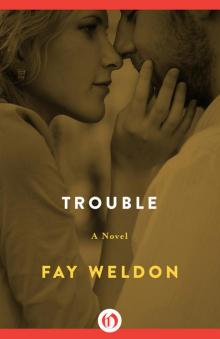 Trouble
Trouble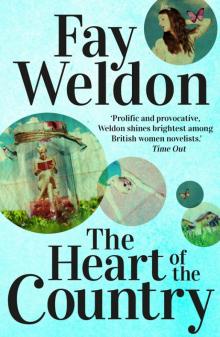 The Heart of the Country
The Heart of the Country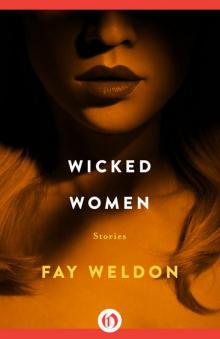 Wicked Women
Wicked Women Mischief
Mischief Long Live the King
Long Live the King Remember Me
Remember Me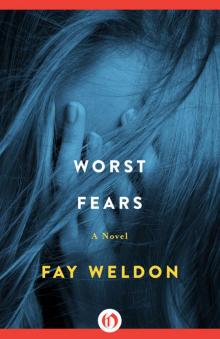 Worst Fears
Worst Fears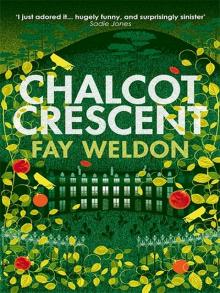 Chalcot Crescent
Chalcot Crescent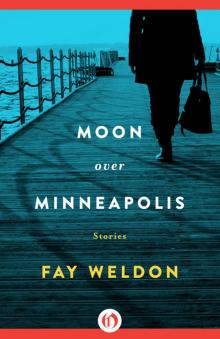 Moon Over Minneapolis
Moon Over Minneapolis The New Countess
The New Countess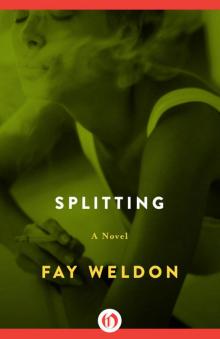 Splitting
Splitting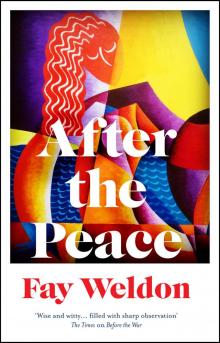 After the Peace
After the Peace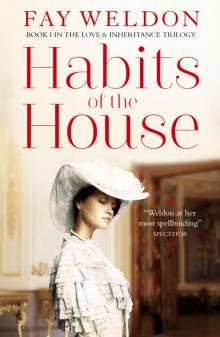 Habits of the House
Habits of the House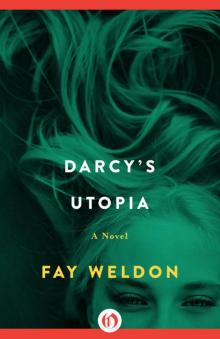 Darcy's Utopia
Darcy's Utopia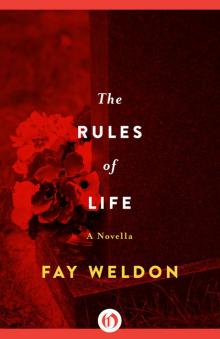 The Rules of Life
The Rules of Life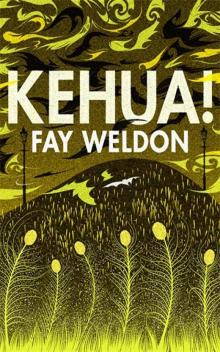 Kehua!
Kehua! Before the War
Before the War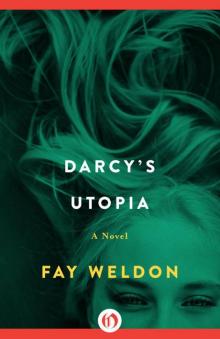 Darcy's Utopia: A Novel
Darcy's Utopia: A Novel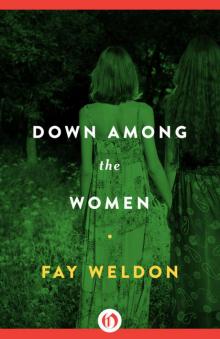 Down Among the Women
Down Among the Women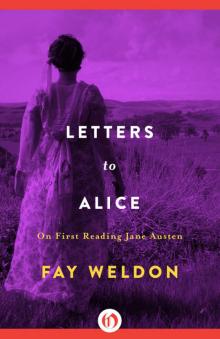 Letters to Alice
Letters to Alice 3 Great Historical Novels
3 Great Historical Novels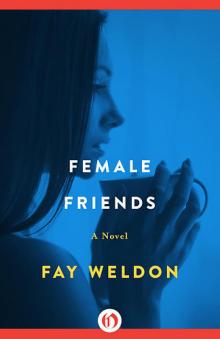 Female Friends
Female Friends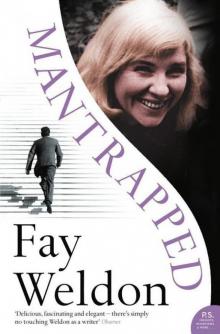 Mantrapped
Mantrapped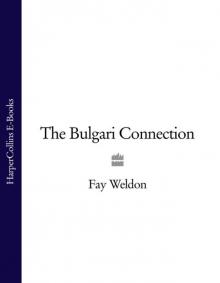 The Bulgari Connection
The Bulgari Connection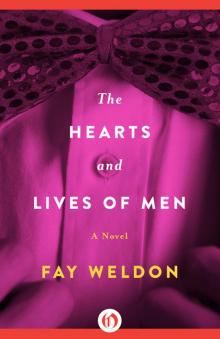 The Hearts and Lives of Men
The Hearts and Lives of Men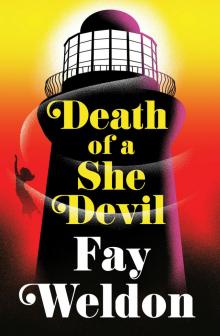 Death of a She Devil
Death of a She Devil